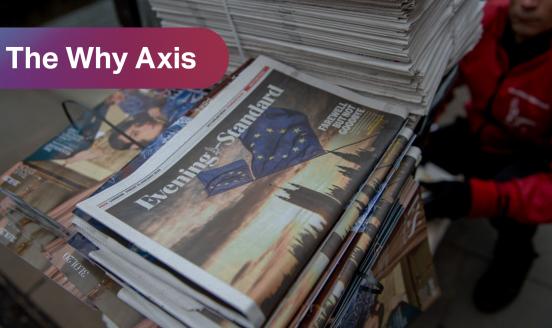Global financial authorities must adapt to a changed world
The first G20 summits in 2008 and 2009 were dedicated to overhauling global financial regulation, empowering international financial authorities, and combating the economic downturn. Since then, progress has been uneven and priorities have shifted. The next summit in Cannes is set to be dominated by discussion of the policy chaos in Europe; financial regulatory matters will be little more than an afterthought. The world still needs a functioning international financial regulatory framework, however, if the vision of a globally integrated financial system is to be sustained – and there would be large economic costs from jettisoning that vision. The crisis has demonstrated the perils of unregulated or poorly regulated financial activities. Coordination among different jurisdictions does not happen spontaneously, and the technical nature of financial policy calls for specialized institutions.
This is why global financial authorities are so important. These include the Financial Stability Board (FSB), an umbrella group of national and international organizations, and the ten FSB member organizations not attached to a country or region. These include the Bank for International Settlements (BIS) in Basel; four bodies hosted by the BIS, respectively the Basel Committee on Banking Supervision (BCBS), the Committee on the Global Financial System, the Committee on Payment and Settlement Systems, and the International Association of Insurance Supervisors; the International Accounting Standards Board (IASB) in London; the International Organization of Securities Commissions (IOSCO) in Madrid; the Organization for Economic Co-operation and Development (OECD) in Paris; and the International Monetary Fund (IMF) and World Bank, in Washington DC.
They are not a homogeneous group, and additional international bodies may be needed in the future to tackle specific worldwide financial challenges. But a more immediate challenge is whether the eleven above listed institutions have kept pace with changes in the geography of global finance. All were created in the 20th century, when Europe and the US (and for a brief period, Japan) dominated the scene. We are in a different financial world now. Based on the Financial Times Global 500 rankings, emerging economies now weigh more than Europe in terms of large listed companies’ aggregate value. Three of the world’s top five banks by market capitalization are Chinese, including the top two. Hong Kong and Singapore get closer to London and New York in financial centers’ league tables. The crisis has accelerated this shift, as the West enters a long cycle of deleveraging and slow growth, while emerging economies continue to catch up. At a less tangible level, the West’s model of financial development has lost much of its aura of superiority.
The new landscape has produced a growing discrepancy between the reality of global finance and the authorities intended to oversee it. True, most of these authorities have expanded their membership to include large emerging economies. But in only one does the chief executive come from the emerging world (OECD Secretary-General Angel Gurria, a Mexican). Among the seven that have a permanent non-executive chair, only at IOSCO is the position is held by a non-Westerner. They are all located in either Europe or the US, making it more difficult for non-Westerners to attend meetings or even conference calls.
As the succession of Dominique Strauss-Kahn at the IMF has illustrated, emerging countries remain unwilling to seize the initiative and force a readjustment. But time is on their side. Westerners should acknowledge that it is in their enlightened self-interest to give up some positions unilaterally, instead of defensively claiming incumbency rights. This requires a monumental change in their mental map, especially for Europeans, who are more overrepresented in this system than Americans, and who still often feel entitled to being at the center of world affairs.
Concrete changes could include the relocation to Asia of, at least, the secretariats of some of the Basel-based committees, including the FSB, and of the IFRS Foundation, which hosts the IASB. This would be logistically easy to achieve. A more ambitious plan could include the move of the headquarters of either the World Bank or the IMF away from the US. At least for some transition time, non-Western candidates should be given priority as heads and chairs of global financial authorities. Certainly, France’s Christine Lagarde and Sweden’s Stefan Ingves, recently appointed at the IMF and BCBS respectively, are highly qualified. But a lot of talent lies elsewhere. The next prominent appointments – at the FSB next month, the IFRS Foundation in the next few weeks, and the World Bank in 2012 – should go to non-Westerners.
Even so, there will be no guarantee of success for global financial authorities. But without some serious such rebalancing, they are assured of fading into irrelevance, even as the world needs them more than ever.
A version of this column was also published in Kathimerini, Νέες ιζορροπίες ζηο διεθνές χρημαηοπιζηωηικό ζύζηημα, Il Sole 24 ore, Autorità finanziarie? Una Babele, Dziennik, Globalne władze finansowe muszą zauważyć kraje wschodzące and Radikal, Küresel finans kurumları değişime ayak uydurmalı



